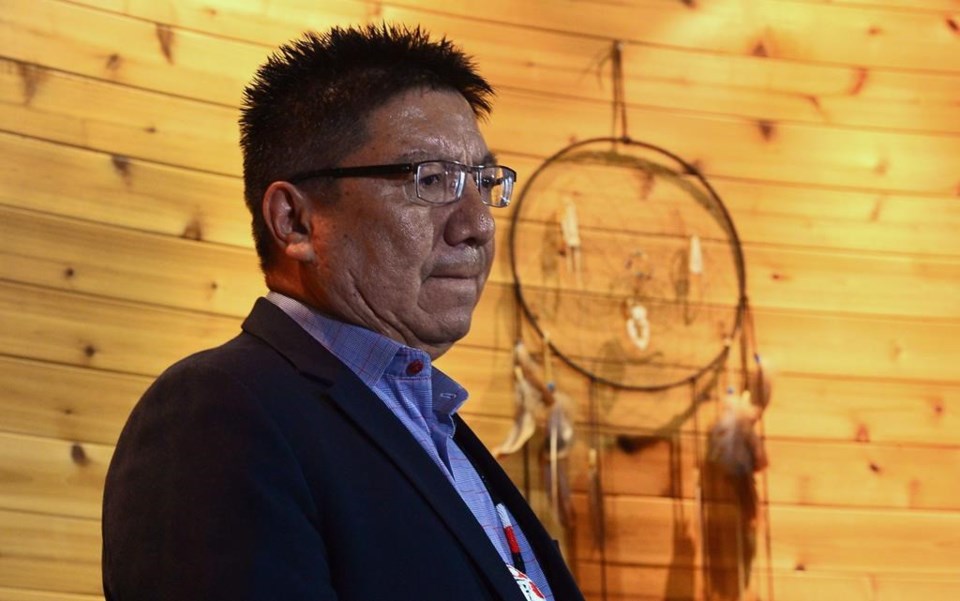Two Ontario regions struggling with COVID-19 outbreaks will be moving back into lockdown next week, while public health restrictions will be loosened elsewhere in the province.
Local leaders in Thunder Bay - a hub for travel in northwestern Ontario - had been calling for assistance as COVID-19 outbreaks were declared at correctional facilities, among the homeless population and at number of local schools.
Simcoe Muskoka, which has also been hit with several outbreaks driven by infectious virus variants, will also be placed on lockdown.
Health Minister Christine Elliott said recent projections on the pandemic in Ontario "(show) us that we must be nimble and put in place additional measures" to stop the spread of the virus.
"With COVID-19 variants continuing to spread in our communities, it is critically important that everyone continues strictly adhering to all public health and workplace safety measures to help contain the virus and maintain the progress we have made to date," Elliott said.
Meanwhile, restrictions will loosen Monday in Niagara Region, Chatham-Kent; Middlesex-London; Southwestern; Haldimand-Norfolk; Huron Perth; and Grey Bruce.
The government lifted a stay-at-home order for most of the province two weeks ago and moved the majority of health units back to its colour-coded restrictions system.
Data has shown the stay-home order and strict public health measures imposed in January brought cases and hospitalizations down but they have since started to trend upwards again.
In Thunder Bay, the local public health unit has recorded more COVID-19 cases in February than throughout all of 2020, the city's mayor said Friday before the lockdown was announced.
"We're in a difficult spot right now," Bill Mauro said in a telephone interview.
"Clearly there is a situation here that we don't see ending in the near term."
The mayor has been calling on the provincial and federal governments to provide financial and human-resources assistance in health care. The only isolation centre in the city of over 121,000 people is on the "verge of failing," he said.
Ontario's top doctor recommended Thursday that the city be moved to lockdown because the virus could spread to remote communities with scarce health-care resources.
Dr. Janet DeMille, medical officer of health for Thunder Bay District Health Unit, welcomed the lockdown announcement.
"These enhanced measures are needed to get COVID in our community under control," she said in a statement.
A New Democrat legislator who represents the northern city in the provincial parliament said the government waited too long to help the city avoid a lockdown.
“It’s been like watching a car crash in slow motion,” Judith Monteith-Farrell said Friday.
Fort William First Nation Chief Peter Collins and Nishnawbe Aski Nation Grand Chief Alvin Fiddler had also requested support from Ottawa and the province, saying the region was grappling to keep up with the growing case load.
The chiefs pointed to inadequate resources for people released from correctional facilities who are being sent to isolate in hotels in Sioux Lookout, Thunder Bay and Timmins.
“Thunder Bay is in a precarious situation, and there is growing concern as government ministries, health organizations and health units struggle to contain the spread of this virus," Fiddler said.
"Moving back to lockdown across northwestern Ontario will be painful, but is necessary as COVID-19 cases continue to rise."
One northwestern Ontario First Nation declared a state of emergency after several members living off-reserve in Thunder Bay tested positive for COVID-19. Neskantaga First Nation Chief Chris Moonias said at least 12 members had tested positive for COVID-19 as of Wednesday.
There was also news Friday of more infectious COVID-19 variants detected for the first time in the northwestern part of the province.
The local health unit that covers the Kenora, Ont., area, reported its first case of a COVID-19 variant. It said a person in the Dryden, Ont., area has tested positive for the B.1.1.7 variant first found in the U.K.
Meanwhile, Premier Doug Ford welcomed the news that Health Canada had approved a third COVID-19 vaccine – from AstraZeneca – for use in Canada, saying it would speed up Ontario's vaccine rollout.
"We're geared up, we're ready to go and just can't wait to get the third vaccine," he said.
The province plans to offer shots to people aged 80 and older starting in the third week of March, though the timeline is subject to change.
Some local health units will start inoculations in the broader community earlier based on their progress vaccinating the highest-priority groups first.
Vaccinations for those 80 and older are to begin at Windsor-Essex County clinics on Monday.
The City of Ottawa will deliver shots next Friday at a pop-up clinic open to those born in 1941 and earlier, adult recipients of chronic home care and residents of high-risk neighbourhoods.
York Region will also allow residents aged 80 and older to book appointments Monday, with vaccinations to start possibly the same day.
This report by The Canadian Press was first published Feb. 26, 2021.
Holly McKenzie-Sutter, The Canadian Press

